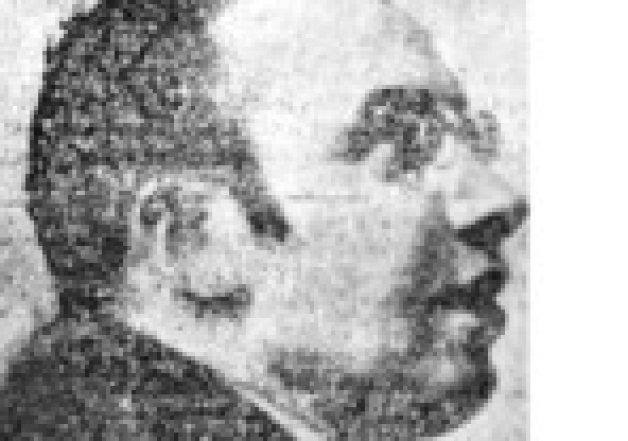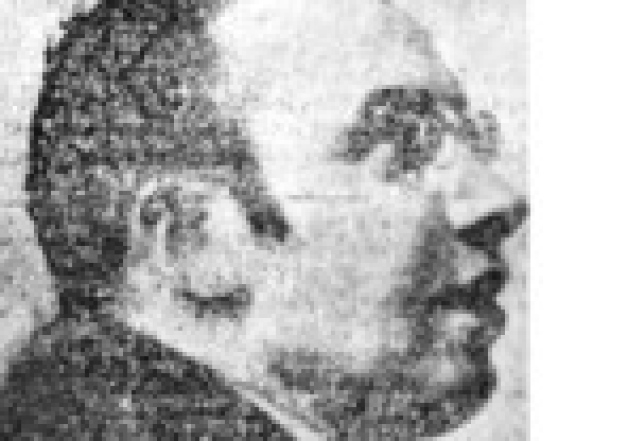Well dressed and attractive, Armgaard Karl Graves seemed to fit the mold of a successful spy. He was a secret agent who went into Edinburgh in order to spy on the British prior to the onset of World War One.
But Graves was not as successful as he looked. From the very beginning, the authorities were aware of his presence and his intentions.
His story is told by way of an exhibition on display at the General Register House on Princes Street in Scotland, courtesy of the National Records of Scotland.
Included in the display is Graves’ spy kit, including secret messages, stolen letters and code books. There is also the information explaining how British agents keep track of spies like Graves.
Graves originally arrived in Scotland in 1912 when Germany was interested in the naval defence tactics of the British. His orders were to gather information about the Rosyth Naval Dockyard and to keep an eye on the vessels in and around Invergordon, the Forth, and the Cromarty Firth.
Although Graves managed to get some information back to Germany, he was not very good at concealing himself or his intentions.
Tristram Clarke, from the National Records of Scotland and in charge of the exhibit, explained how both his landlady and the authorities had figured him out very quickly.
Graves’ cover story was that he was a doctor from Australia who had moved to Scotland in order attend classes at Edinburgh University and to work.
But before long he found himself on trial for espionage.
Prior to his work as a spy, he had seen the inside of a courtroom for earlier offences. Records indicate that he was born in 1882 in Berlin, but since he has taken on more than one name, this is not certain.
Graves had moved to Australia when he was 16, but ended up going back home after being accused of harassing a woman and of stealing. Not long after, he was arrested for fraud, but ran off instead of serving time. The Germans became aware of him, and decided to make him a spy.
Before the war, the Dreadnought warships were quickly being constructed by the British, and Germany began to view them as a threat. Media began to publish stories of an upcoming attack on Britain by the Germans.
In 1911, Britain passed the Official Secrets Act and created its Secret Service in order to defend itself.
German spymaster, Albert Tapken, gave Graves an ultimatum. In order to avoid being locked up, he could go to Scotland as a spy to gather information about its navy, which he would then provide to Berlin.
After arriving in Scotland, he moved in with his widowed landlady, 37 year old Agnes McLeod, and her son. It didn’t take long for Mcleod to figure out that Graves was not who he said he was. She and the other boarders found it odd that Graves carried a book with him about battleships, that he spoke often about the German navy.
Clarke suggests that Graves may not have wanted to act as a spy or that he had not done well when creating or maintaining his fake identity.
Even though Graves was a hopeless spy, he was given £15 each month by the spymaster. One time he even complained to the Royal Mail when he thought that his letters to and from Germany were not being sent, which nearly blew his cover.
But he was right, the Secret Service was in fact intercepting his mail. After a number of months of observations, they caught up with him in Glasgow.
When they found him, he had with him a map of the navy’s dockyard at Rosyth, history notes about the Forth Bridge, and a notebook containing codes. Since having codes that could be used to harm Britain’s defences were illegal to possess, Graves was sent to jail with an 18 month sentence, the Edinburgh News reports.
After just a few weeks, he managed to strike a deal with the British authorities to go back home to Berlin and make a list of the names of German spies currently residing in Britain.
Instead of fulfilling his promise, he took payment and then fled to America.
He later wrote a book based on his experiences as a spy, which was published the day before the war started. Because of the perfect timing, Graves made a fortune and became perhaps the most well known spy worldwide.
He had additional brushes with the law later on, including burning a woman alive and being locked up for fraud.
It is believed that Graves died in the U.S.

